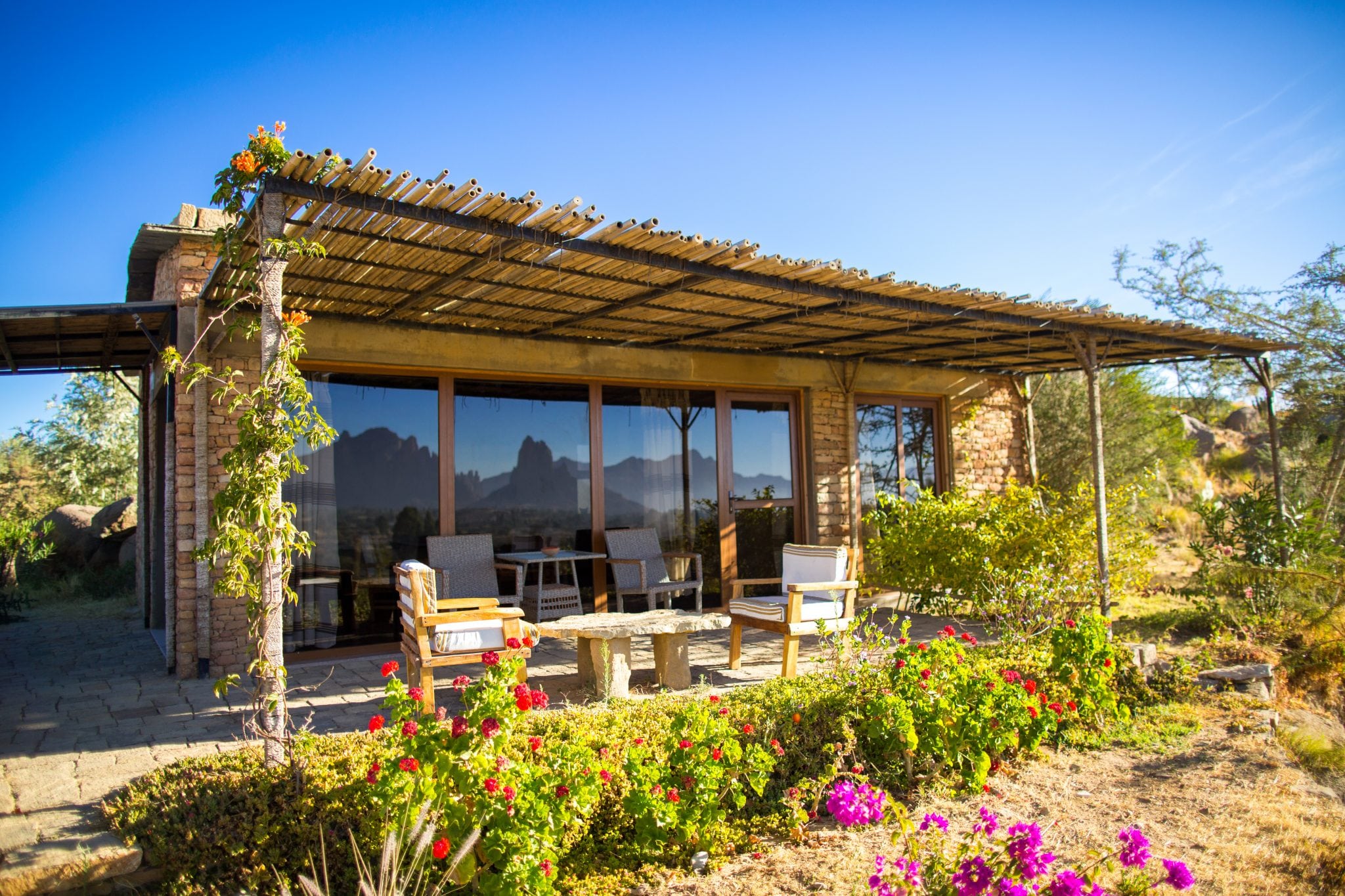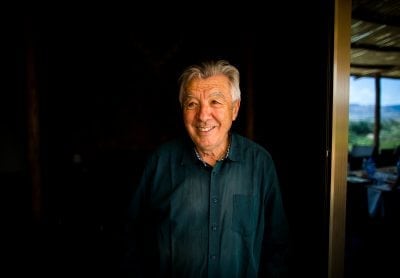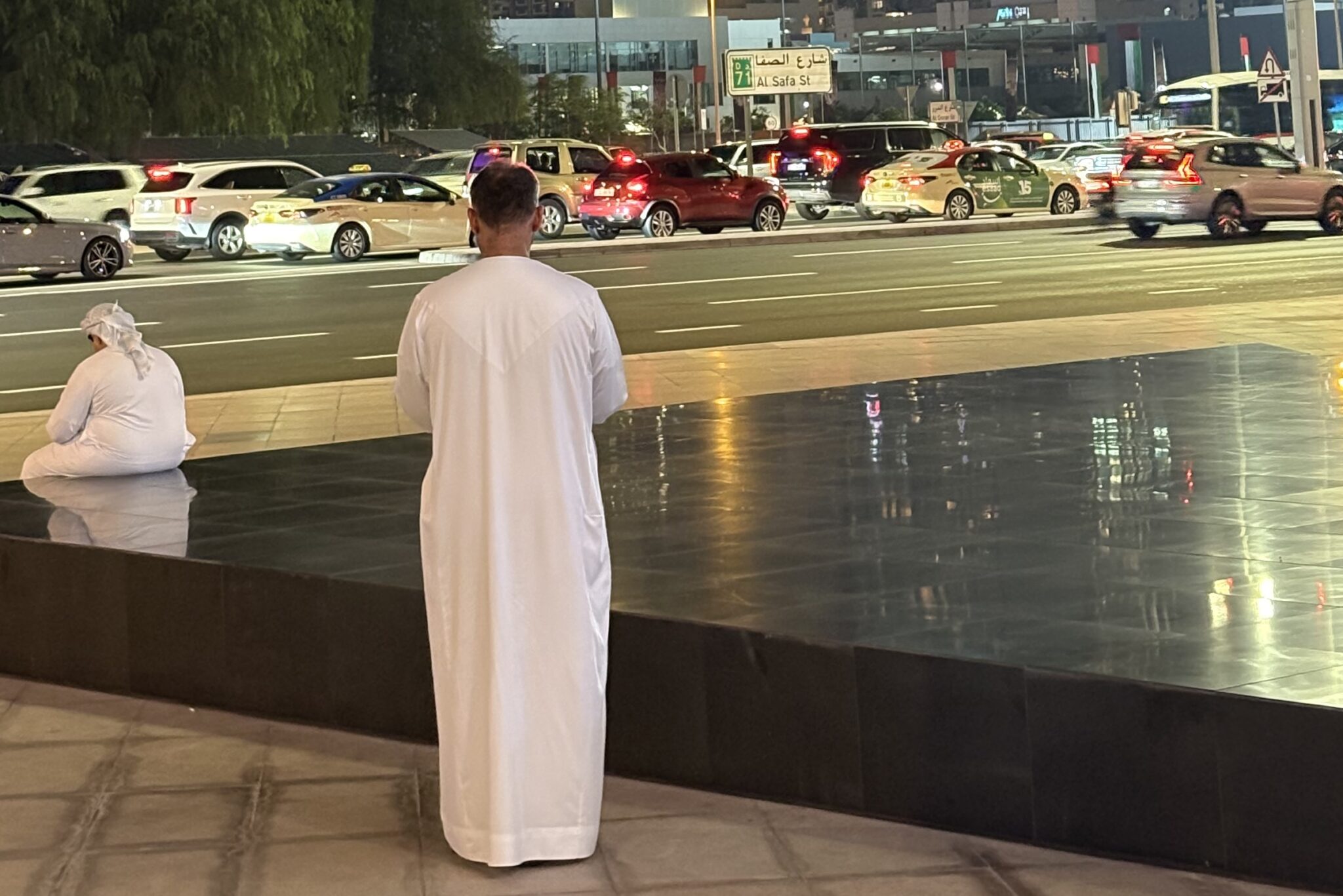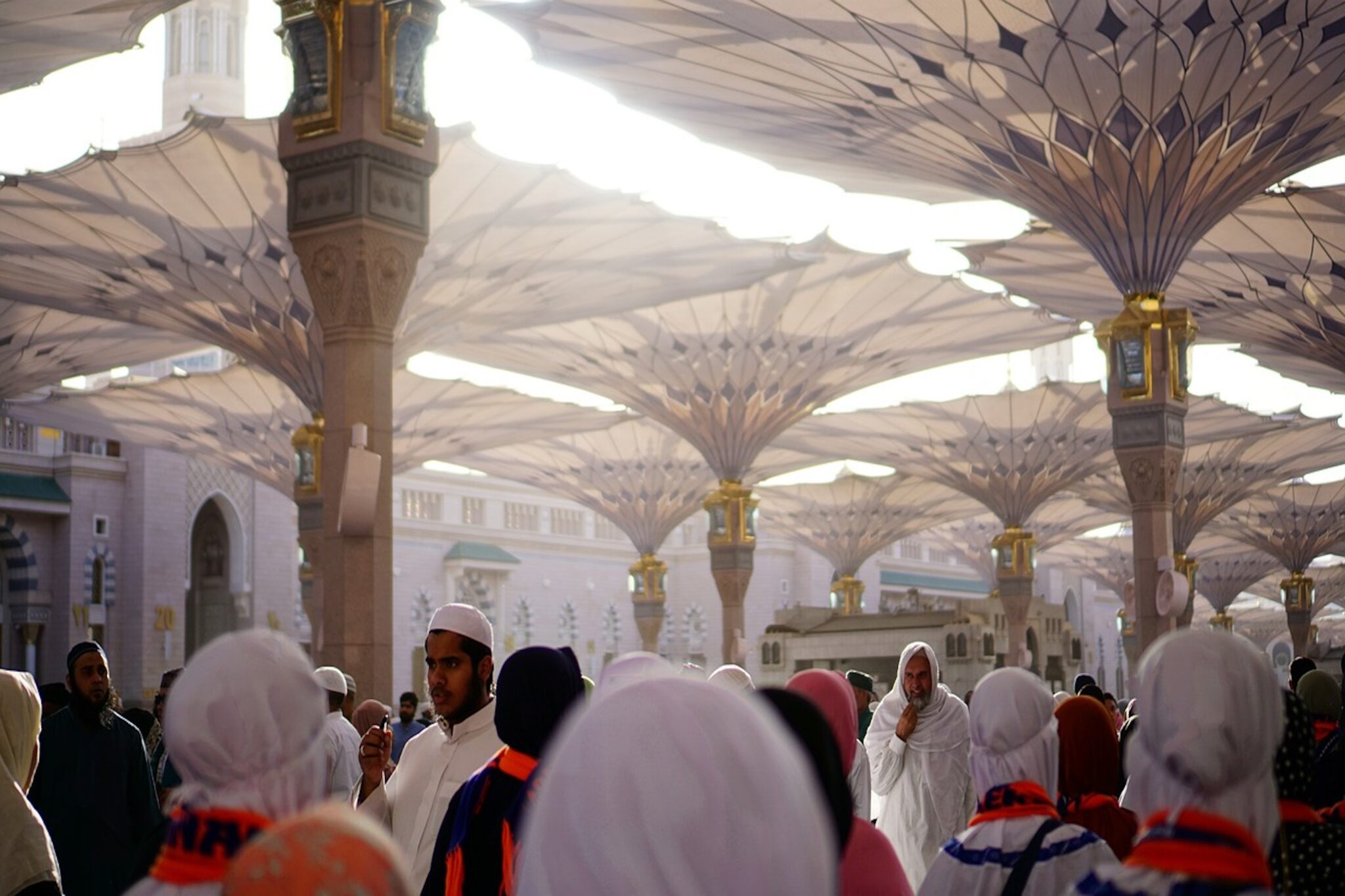Ethiopia’s Nascent Luxury Tourism Market Starts to Take Hold
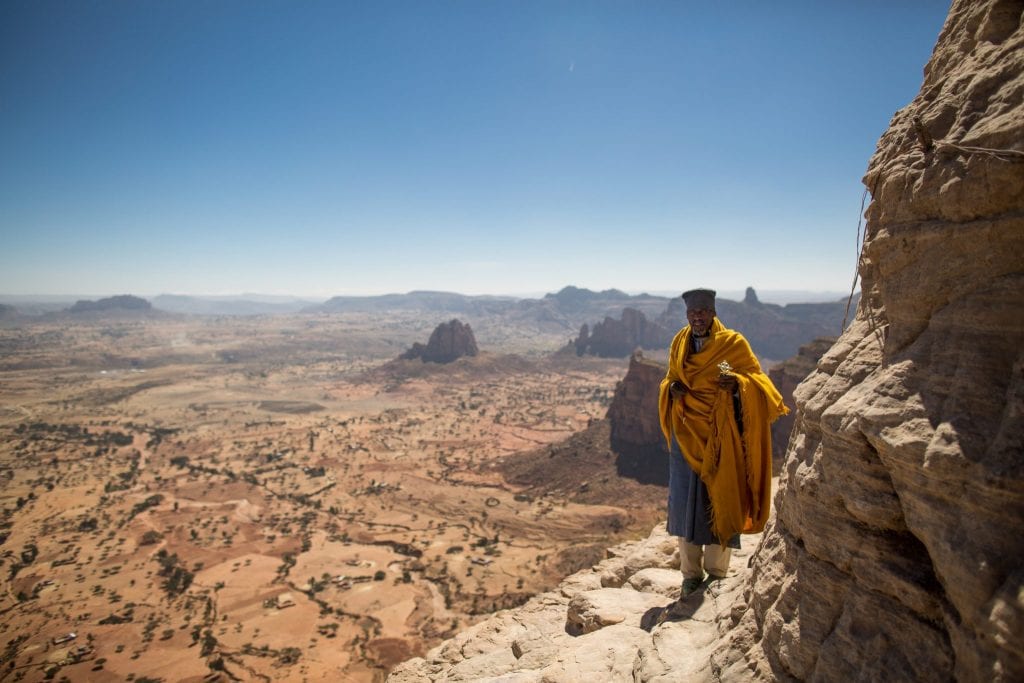
Skift Take
Luxury is a word that one would rarely use to describe the current state of accommodations in Ethiopia. Its famous landmarks include the Simien Mountains and Gelada monkeys, the submerged churches of Lalibela, the religiously significant cities of Gondor and Aksum, and the otherworldly Danakil Depression.
Ethiopia is also one of the poorest nations in the world and for many Western tourists its image is tied to the devastating 1980s famine.
Traveling through the region has traditionally been trying, but a new generation of foreign and local industry players are eager for change with hopes that tourism can provide a steady foundation for an economy in flux.
One of the biggest obstacles to tourism growth is a shortage of quality lodges and tented camps, but a series of new projects including Limalimo Lodge and Korkor Lodge are introducing Westernized levels luxury and attracting more high-end visitors.
“Luxury tourism in Ethiopia is still in its infancy, especially when compared to neighboring Kenya and other countries in the region, which have a longer history in tourism. However, the scene is changing and new lodges are being established, which is increasing the options available to the luxury market,” said Julia Jeans, operations manager at Limalimo Lodge.
Limalimo Lodge is an eco-lodge located within the Simien Mountains. It was built with rammed earth, wood and thatch, and is run on renewable resources. Conceptualized by Ethiopian tour guides, with investments from the African Wildlife Capital, Limalimo Lodge brings in a diverse mix of guests: Well-traveled, affluent and older Northern Europeans; expats working in the vast diplomatic industry in Addis Ababa; and Ethiopians eager to see more of their own country.
Korkor Lodge is another relatively new, eco-lodge that sits at the base of the Gheralta Mountains in the Eastern Tigray region of Ethiopia. Rock-carved churches, archaeological sites, and wide-open plains surround it. The lodge itself has a dozen bungalows designed in honor of the original Tigrinia homes, built with stones mined from the countryside, and shaped with an age-old craft.
Korkor founder Luigi Catamessa first arrived in Ethiopia from Italy in 1992 to organize scientific missions and film productions and has since become a writer and advocate of the untouched beauty and diversity of Ethiopia.
It is not just new properties, however, that are making it the country more accessible and comfortable — Ethiopia Airways continues to open new flight routes to Europe, the US and Southeast Asia. And while many higher-end tourists travel between sites with helicopter and charter flights, Ethiopian Airways offers a reliable domestic flight service.
Other signs of growth to come include a 50-room hotel in the medieval city of Gondor — the first stop from Addis on many itineraries throughout the north.
“Tourism is increasing almost year on year in Ethiopia. We have more political stability now so I expect the next years to see really strong growth,” said Jeans.
“The industry here needs to step up to be able to meet the needs of the increasing number of tourists. It is an exciting moment and I think there will be a lot of change and growth in the coming years due to an increasing number of visitors, but also with the country opening up more to the luxury market.”
The political stability that Jeans refers to is erratic at best. Protests began in the Oromia region in 2015, continued in the Amhara region in 2016, and in late September this year the U.S. embassy closed in anticipation of large-scale protests, which are just one risk that hoteliers and operators must consider before setting down roots.
Luxury Operators Face Supply, Staff Challenges
Although there are ingrained challenges for any operator keen on launching in Ethiopia, there are particular ones that come with creating a luxury experience.
The resorts are often located in remote regions, which means it can be hard accessing high-quality supplies. And while it can be a pain to import many structural items such as mattresses and bedding from abroad, there is also a plus side.
“We decided to focus locally and only buy what is available in the area. We buy from the local community whenever possible, and the rest comes from Gondar which is located 100 kilometers away,” said Jeans.
More than 90 percent of Limalimo’s staff come directly from nearby communities, and many helped construct the lodge.
While Ethiopia is known for its hospitable culture, few locals have any experience working in the hospitality industry. Being among the first high-end properties means training from the ground up.
“To offer quality services is not easy. We try to give working opportunities to the local young people who are living in a rural ancestral society where comfort as we know it does not exist,” said Korkor founder Luigi Catamessa.
“Very often local people are not really ready to accept training on a matter which is not part of their culture. With a lot of patience and endurance, we get to some success.”
Jeans hired an international customer service training consultant to help train staff but refers to it as an ongoing project.
“None of our staff have worked in similar jobs previously. I aim to get them to relate to the very hospitable traditions that Ethiopians have in their own homes. We do get good feedback on our customer service,” said Jeans, who hopes to bring on new staff as the number of guests and rooms grow.
The lodge also facilitates visits to the local community where guests can share in coffee ceremonies and injera making that ultimately supports the local family.
Local Operators Weigh In
It’s not just foreign operators who weigh the pros and cons of setting up in Ethiopia. Skift spoke with several local operators on the ground who expressed both frustration about — and faith in — the state and growth of Ethiopia's tourism industry.
Hustlers, for example, remain a challenge for authorized tour operators, said Bini Wolday, owner of local tour operator Simien Experience.
“Business changes slowly because there are so many tourist hustlers at every attraction who do the same business that I do. I am licensed by the Minister of Tourism, but hustlers who are not licensed take away our business. The government cannot control them or they don’t want to stop them,” said Wolday.
Owner of local tour operator Gorgeous Ethiopia, Semaamelak Kumie, echoed the frustration faced from a lack of government surveillance.
Other challenges to growing tourism in Ethiopia, said Kumie, include a lack of tourism policy, lack of law enforcement, and lack of government concern for the industry, lack of promotion and image building, lack of banking services, and lack of clearly defined benefit-sharing mechanism within the community — lots of lack.
Despite the irritation,local operators were proud of their country and confident of its ability to grow and evolve without losing its roots.
Major Luxury Players Remain Wary
Many of the more recognized luxury operators throughout Africa — including Singita, AndBeyond and Abercrombie and Kent — have yet or have only just began to develop tours or properties within Ethiopia.
“More and more A&K travelers are searching for adventure in places that still retain their traditional character and authenticity. Ethiopia offers just such an experience, with unspoiled scenery, colorful festivals and a fascinating past,” said Stefanie Schmudde, vice president of product development and operations at Abercrombie and Kent.
Last year Abercrombie and Kent introduced a new itinerary, starting at $7,295, that follows a historic route through the Simien mountains. With no more than 18 guests per trip, a guide explores the source of the Blue Nile, the Lucy skeleton that changed society’s understanding of human evolution, the distinctive gelada baboons, and churches constructed high in the mountains and underneath the land.
“We call it the luxury of access. This journey ventures farther off the beaten track and deeper into the culture, sometimes forgoing a creature comfort for the exclusivity of experience,” said Schmudde.
Other major luxury hospitality brands such as Singita and andBeyond, which have a strong presence in southern Africa and safari destinations, are not currently offering itineraries nor considering developing itineraries for Ethiopia at the moment. Leadership from neither company would expand on their decisions.
Journeys by Design is one of a few luxury operators in Ethiopia that's developed its business over time. Will Jones, an environmental scientist, founded the company in 1999 and the tour operator specializes in bringing hospitality to wild spaces. The company uses private vehicles, private aircraft and a small curated collection of camps and lodges to manage as much of the experience as possible.
The operator's most common customers range from 35 to 75 years old, know Africa well, and are looking to dig deeper. They are CEOs wishing to travel by helicopter to the Danakil or Gheralta, academics looking to gain deeper knowledge of historical, cultural or environmental elements, or wildlife enthusiasts that will spend days in search of a rare bird or the Ethiopian wolf.
The largest challenge that the operator faces is managing luxury tourists’ expectations.
“While there has been an improvement in the quality on offer, it’s uneven with basic, functional accommodations vastly outnumbering the kinds of luxury lodges, camps and private houses one would expect to find elsewhere. The same is true of the infrastructure, which though again improved, has some way to go before it can be fairly compared with the likes of Botswana, Kenya, Tanzania or South Africa," said founder Will Jones.
The Future
It is easy to find the difficulties in creating a luxury tourism ecosystem in Ethiopia, but that would be a mistake.
Ethiopia holds many of the elements that luxury travelers are looking for today – unfamiliar to the masses, a culture untouched by the machinations of society, cuisine that is both authentic, local and so good that you'll lick your fingertips every time.
As of today, there exists sufficient infrastructure and security for the adventurous to explore in relative solitude. The question then remains not whether operators and hoteliers should invest in Ethiopia but whether Ethiopia wants them to come.

